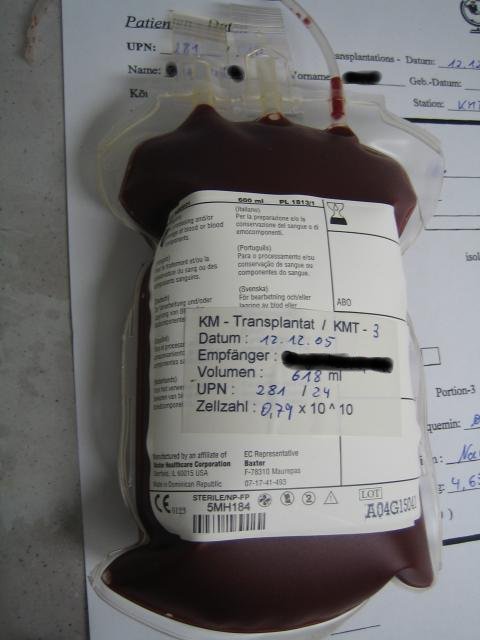
Recently Diagnosed or Relapsed? Stop Looking For a Miracle Cure, and Use Evidence-Based Therapies To Enhance Your Treatment and Prolong Your Remission
Multiple Myeloma an incurable disease, but I have spent the last 25 years in remission using a blend of conventional oncology and evidence-based nutrition, supplementation, and lifestyle therapies from peer-reviewed studies that your oncologist probably hasn't told you about.
Click the orange button to the right to learn more about what you can start doing today.
- You are here:
- Home »
- Blog »
- Multiple Myeloma »
- Myeloma Stem Cell Transplant Side Effect- PTSD
Myeloma Stem Cell Transplant Side Effect- PTSD

“Approximately one fifth of patients undergoing HCT experienced clinically significant PTSD symptoms at six months post-transplant autologous stem cell transplant”
Post Traumatic Stress Disorder (PTSD) as a long-term side effect from autologous stem cell transplant (ASCT) prescribed to treat my multiple myeloma is insult to injury in my opinion.
I was diagnosed with multiple myeloma in early 1994. I underwent local radiation, induction chemotherapy and an autologous stem cell transplant in 1995.
Physical short, long-term and late stage side effects are difficult. But I’ve found the mental side effects of the ASCT for my multiple myeloma to be devastating.
Why is PTSD from an ASCT devastating?
- Countless studies document the fact that, on average, ASCT does NOT result in a longer overall survival aka length of life. Possibly a longer first remission, but ASCT survivors do not achieve a longer life from ASCT.
- Countless studies document the short, long-term and late stage side effects that can result from an ASCT. An ASCT is high-dose, aggressive chemotherapy. PTSD is one possible side effect of many.
- Countless studies document novel therapies providing as long an overall survival as ASCT with less toxicity and therefore reduced risk of short, long-term and late stage side effects.
I find the fact that ASCT was pushed by my oncologists when they knew of the short, long-term and late stage side effects, to be devastating. Newly diagnosed MM patients place their trust in their oncologists.
The disabilities that resulted from the mental adverse events from my ASCT are a daily reminder of my oncologists (and the FDA’s) disregard for my complete trust.
The insult that MM patients experience from an ASCT that doesn’t cure their multiple myeloma is the tens of thousands of dollars spent on this dangerous medical procedure. The injury that MM patients experience are the many short, long-term and late stage adverse events experienced in their lifetimes.
PTSD, hyper vigilance, specifically.
The fact of the matter is that there are a host of evidence-based non-conventional therapies that can synergize aka integrate with conventional chemo to both enhance the efficacy of these chemotherapy regimens as well as reduce their toxicity.
Have you been diagnosed with multiple myeloma? Are you considering an autologous stem cell transplant? To learn more about evidence-based, non-toxic, non-conventional therapies to fight your MM, scroll down the page, post a question or comment and I will reply to you ASAP.
Thank you,
David Emerson
- MM Survivor
- MM Cancer Coach
- Director PeopleBeatingCancer
Recommended Reading:
- Multiple Myeloma Survivor- Chemotherapy, Heart Failure-
- Stem Cell Transplant- Treatment-related Secondary Cancer
- Multiple Myeloma Therapy- Cannabis and Cannabinoids
Many patients develop clinically significant PTSD symptoms early after HSCT
“Nearly one-fifth of patients who undergo hematopoietic stem cell transplantation develop symptoms of PTSD within 6 months, according to study results presented during the ASCO20 Virtual Scientific Program.
The researchers also identified risk factors associated with developing PTSD symptoms in this patient population…”
Post-Traumatic Stress Symptoms After Hematopoietic Stem Cell Transplantation
“Approximately one fifth of hematopoietic stem cell transplant (HCT) recipients may experience clinically significant post-traumatic stress disorder (PTSD) symptoms after transplant…
At 6 months post-HCT, 18.9% of patients experienced clinically significant PTSD symptoms. The most common symptoms among these patients were
- hypervigilance (92.3%),
- avoidance (92.3%), and
- intrusion (76.9%).
Posttraumatic stress symptoms predict impaired neutrophil recovery in stem cell transplant recipients
“…many transplant patients experience traumatic stress reactions due to
- mortality threat,
- interpersonal isolation,
- financial and occupational loss, and
- invasive medical procedures.
Emerging evidence suggests that trauma-related stress symptoms (TSS) predict significant health complications following SCT.
The aim of the current prospective study was to examine TSS in the acute aftermath of SCT as a predictor of neutrophil recovery following SCT, a crucial component of immune defense against infection.
Discussion- To our knowledge, the current study is the first to document an independent relationship between TSS and rate of neutrophil recovery following autologous SCT…
Quality of life and mood predicts post-traumatic stress disorder after hematopoietic stem cell transplantation
“Background- During hospitalization for hematopoietic stem cell transplantation (HCT), patients experience a steep deterioration in quality of life (QOL) and mood. The impact of this deterioration on patients’ post-HCT QOL and post-traumatic stress disorder (PTSD) symptoms is unknown…
Conclusions- A substantial proportion of patients with hematologic malignancies undergoing autologous and allogeneic HCT had clinically significant depression (43.3%) and PTSD symptoms (28.4%) at six months post-HCT.
Decline in QOL and increase in depressive symptoms during hospitalization for HCT were the most important predictors of 6-month QOL impairment and PTSD symptoms.
Therefore, managing depression symptoms and QOL deterioration during HCT hospitalization may be critical to improving QOL at six months and reduce the risk of PTSD.
Psychiatric Care in Hematopoietic Stem Cell Transplantation
“Patients with cancer frequently experience neuropsychiatric symptoms due to their medical illness or its treatment. In recent decades, psychiatrists have become increasingly involved in the care of patients with cancer.
However, psychiatrists may be less familiar with hematopoietic stem cell transplantation (HSCT), a distinct cancer treatment modality associated with multiple neuropsychiatric sequelae…
Methods: We performed literature searches in PubMed and PsychInfo to identify articles describing neuropsychiatric symptoms, including
- depression,
- anxiety,
- distress,
- post-traumatic stress disorder,
- delirium and
- cognitive impairment,
resulting from HSCT in adults…
Post-traumatic Stress Disorder- Patients undergoing HSCT face a series of life threatening events, starting with their initial cancer diagnosis. HSCT is associated with a high risk of potentially fatal side effects, and those who survive still face high mortality rates during the years following treatment…
Other Cognitive Disorders- The cognitive consequences of HSCT extend beyond the acute mental status changes of delirium to include long-term cognitive changes.
Recent studies reveal that many patients actually demonstrate cognitive impairment prior to their transplant,48 and the cognitive outcomes for patients are diverse, ranging from improvement post-transplant49 to long-term cognitive impairment.48
Of great importance, patients receiving HSCT identify lack of information about treatment-induced cognitive impairment as one of their primary concerns.49…
Conclusions-Patients receiving HSCT experience a high prevalence of psychiatric comorbidity…


